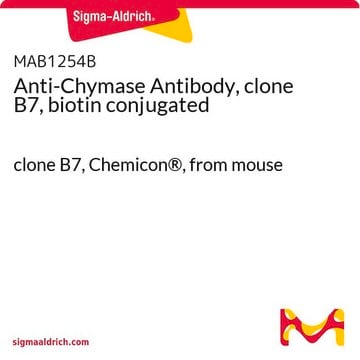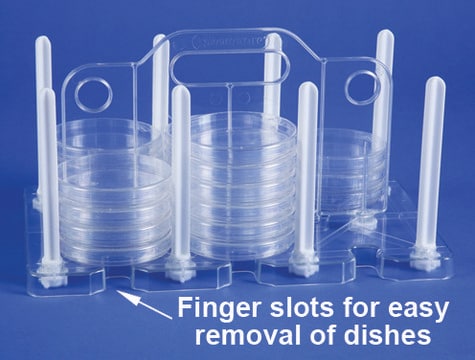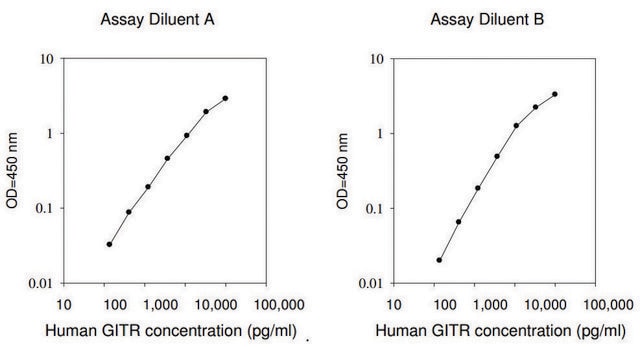MAB1254
Anti-Chymase Antibody, clone B7
clone B7, 2.4 mg/mL, Chemicon®
Szinonimák:
Mast Cell Protease I
About This Item
IHC
immunohistochemistry: suitable
Javasolt termékek
biológiai forrás
mouse
Minőségi szint
antitest forma
affinity isolated antibody
antitest terméktípus
primary antibodies
klón
B7, monoclonal
faj reaktivitás
human
gyártó/kereskedő neve
Chemicon®
koncentráció
2.4 mg/mL
technika/technikák
dot blot: suitable
immunohistochemistry: suitable
izotípus
IgG1κ
alkalmasság
not suitable for Western blot
NCBI elérési szám
UniProt elérési szám
kiszállítva
wet ice
célzott transzláció utáni módosítás
unmodified
Géninformáció
human ... CMA1(1215)
Általános leírás
Egyediség
Immunogén
Alkalmazás
Immunohistochemistry: 0.5-1.0 μg/mL. For optimal results, tissues or cytospin preparations should be fixed in Carnoy′s Fluid (60% ethanol, 30% chloroform, 10% glacial acetic acid). Not recommended for use on formaldehyde fixed tissue.
Not recommended for use on Western blots.
Optimal working dilutions must be determined by end user.
Inflammation & Immunology
Inflammation & Autoimmune Mechanisms
Fizikai forma
Tárolás és stabilitás
Analízis megjegyzés
POSITIVE CONTROL: lung, heart, skin, placenta.
Jogi információk
Jogi nyilatkozat
Nem találja a megfelelő terméket?
Próbálja ki a Termékválasztó eszköz. eszközt
Tárolási osztály kódja
12 - Non Combustible Liquids
WGK
WGK 1
Lobbanási pont (F)
Not applicable
Lobbanási pont (C)
Not applicable
Analitikai tanúsítványok (COA)
Analitikai tanúsítványok (COA) keresése a termék sarzs-/tételszámának megadásával. A sarzs- és tételszámok a termék címkéjén találhatók, a „Lot” vagy „Batch” szavak után.
Már rendelkezik ezzel a termékkel?
Az Ön által nemrégiben megvásárolt termékekre vonatkozó dokumentumokat a Dokumentumtárban találja.
Tudóscsoportunk valamennyi kutatási területen rendelkezik tapasztalattal, beleértve az élettudományt, az anyagtudományt, a kémiai szintézist, a kromatográfiát, az analitikát és még sok más területet.
Lépjen kapcsolatba a szaktanácsadással







